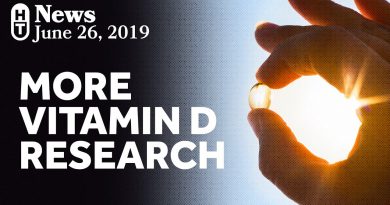Hydrilla Verticillata: A True Superfood Plant
Hydrilla Verticillata Health Benefits: Potent Nutrition – A True Green Superfood
Hydrilla Verticillata is an aquatic plant that grows in fresh water bodies throughout the Americas. This little-known nutritional powerhouse is a true green superfood in every sense of the word. Just one tablespoon (4.75g) contains 624mg Calcium (62.4% DV) and 475 mcg B-12 (7,750% DV) making Hydrilla the world's most concentrated source of these nutrients. Hydrilla is also exceptionally rich in B-Vitamins and a host of other minerals, amino acids, essential fatty acids, enzymes, antioxidants, and health promoting compounds. By weight, Hydrilla is about 50-60% complete protein and furthermore contains high amounts of lysine.
Hydrilla powder supports the immune system, weight loss, healthy skin (amazing detoxifier), strong bones (excellent source of fully bioavailable calcium), overall nutrition and is a stimulant-free source of natural energy.
Hydrilla's nutrient density is attributed to its root structure, which grows deep into pure subterranean soil that has an abundance of essential and trace minerals. Other well-known aquatic green foods such as spirulina or blue green algae, live on top of fresh water where they absorb nutrients as well as contaminants from the water surface in addition to airborne contaminants. Hydrilla, being a rooted plant, is protected from airborne and floating contaminants, making it a cleaner aquatic plant. In addition, submerged aquatic plants like Hydrilla accumulate nutrients from both the soil and water. This gives them the ability to absorb more nutrients than surface plants. This advantage is especially true of mineral content. Submerged macrophytes have a higher concentration of calcium, magnesium, phosphorus and trace minerals
Calcium Is Key to Maintaining Radiant Health
Unlike calcium found in synthetic vitamin and mineral supplements, Hydrilla contains a an extremely bioavailable form that is fully utilized by the body. The calcium in Hydrilla is loaded with nutrient co-factors that allow for full absorption, whereas calcium found in the vast majority of vitamin pills is poorly absorbed. Typically, synthetic calcium is only absorbed at about 20% of the total amount in a given product and tends to contribute to over-alkalinity of the digestive tract, which often leads to a variety of health problems such as candida, among others.
Adequate daily calcium is difficult to obtain from diet alone. Dairy products are typical sources of calcium for many people, but in their current form, are a poor source due to rampant homogenization and pasteurization processes in the dairy industry. Pasteurization (the heating of milk to between 150-275 for a period of time) and homogenization (the high pressure processing of milk which chemically alters the fat molecules) negatively affects the body's ability to absorb calcium from dairy products, resulting in decreased absorption. Raw milk, although available in some areas, is harder to come by. Even so, 1 cup of raw milk only has approx. 290mg of calcium (source: Self Nutrient Database, milk) whereas Hydrilla has 312mg of calcium in 1.5 teaspoons.
Other sources of calcium such as the green leafy vegetables spinach, chard, kale and others are loaded with oxalic acid which severely inhibits the absorption of calcium, making them mediocre sources at best (Hydrilla does not contain oxalic acid). Furthermore, the Recommended Daily Intake of calcium is quite high at around 1000mg for adults daily. The vast majority of people, and especially those on vegan / vegetarian / raw diets fall far short of this.
624mg of fully With Bioavailable calcium per tablespoon, Hydrilla powder is an incredibly potent source of this hard to get, yet essential mineral. Adding Hydrilla to ones diet can help those deficient in calcium obtain adequate amounts when included as part of a complete, well-rounded diet.
Calcium is the most abundant mineral in the human body and plays a critical role in multiple cellular processes and tissues. The majority of calcium is found in the bones and teeth. When the body is deficient in calcium or overly acidic, it pulls the mineral from the bones and teeth for use as a pH buffer in the blood or for use in cellular processes, leading to osteoporosis and tooth decay. The Linus Pauling Institute states that, "The physiological functions of calcium are so vital to survival that the body will demineralize bone to maintain normal blood calcium levels when calcium intake is inadequate. Thus, adequate dietary calcium is a critical factor in maintaining a healthy skeleton "
Calcium is one of a group of minerals that exert a sedative effect on the nervous system. Therefore, calcium deficiency is often accompanied by anxiety and stress.
Vitamin B-12 and its Role in Mood, Nervous System Health and DNA Synthesis
Hydrilla powder is the most concentrated source of naturally occurring B12 on the planet. Hydrilla contains 500mcg of B12 in one tablespoon, whereas oysters, the runner up for B12 nutrient density, provide approx. 50-100mcg per cup (source: Self Nutrient Database, oysters). Additionally, vegan / vegetarian sources of B12 are notoriously rare and even then only contain minute quantities of the nutrient, making them virtually useless as a reliable source of the vitamin (Hydrilla is a vegan product).
Vitamin B12 research has demonstrated a significant link between the nutrient, mood, and nervous system disorders. People experiencing fatigue, depression, brain fog, anxiety and other neurological symptoms often respond well to supplementation, as B12 plays an important role in the synthesis of neurotransmitters as well as the myelin sheath, which is critical for proper nerve transmission (source: Tufts Medical Center). Studies with Rats showed a strong correlation between vitamin B12 deficiency and low neurotransmitter levels (source: Deana R).
B12 also plays a major role in the synthesis of RNA and DNA. The Linus Pauling Institute explains:
"Methylcobalamin is required for the function of the folate-dependent enzyme, methionine synthase. This enzyme is required for the synthesis of the amino acid, methionine, from homocysteine. Methionine in turn is required for the synthesis of S-adenosylmethionine, a methyl group donor used in many biological methylation reactions, including the methylation of a number of sites within DNA and RNA. " (Source: Linus Pauling Institute)
One tablespoon of Hydrilla powder provides 7,750% (500mcg) of the Recommended Daily Intake (RDI) of Vitamin B12. It is suggested that first time users start with a one teaspoon and work up from there to find a level that suits them. According to the National Institute of Health's Office of Dietary Supplements, B12 showed no adverse effects in those taking relatively high doses of 1mg (1,000mcg) per day for 5 years. They state:
"The IOM did not establish a UL [upper limit] for vitamin B12 because of its low potential for toxicity. In Dietary Reference Intakes: Thiamin, Riboflavin, Niacin, Vitamin B6, Folate, Vitamin B12, Pantothenic Acid, Biotin, and Choline, the IOM states that "no adverse effects have been associated with excess vitamin B12 intake from food and supplements in healthy individuals." (source: National Institute of Health)
Note: This entire product statement has not been evaluated by the Food & Drug Administration. This product is not intended to diagnose, treat, cure or prevent any disease.
Citations
Self Nutrition Data: "Milk, Whole , 3.25% milkfat"
Self Nutrition Data: "Mollusks, Oysters , Eastern, Wild, Raw"
Tufts Medical Center Homepage: "Vitamin B -12"
Deana R., Vincenti E., Deana AD ., "Levels of Neurotransmitters in Brain of Vitamin B12 Deficient Rats", International Journal of Vitamin Nutrition Research
Linus Pauling Institute: "Micronutrient Database: Vitamin B-12"
National Institutes of Health – Office of Dietary Supplements: "Vitamin B-12"
Hydrilla Verticillata: A True Superfood Plant by Justin Copperton




